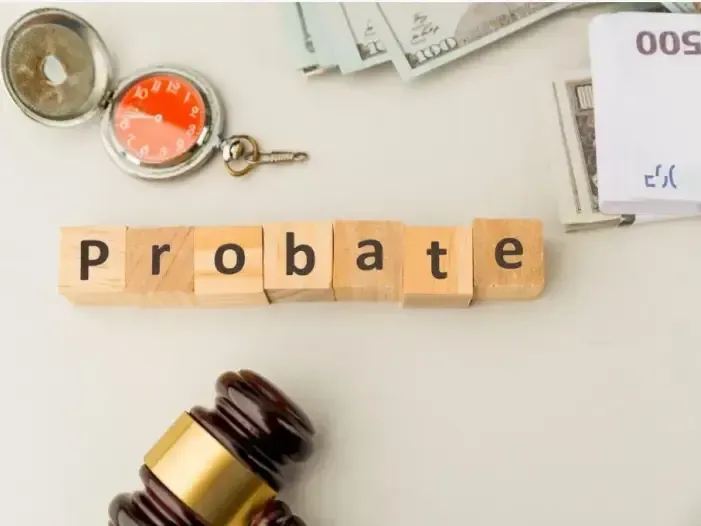HOLIDAY SPECIAL OFFER 40% OFF ALL ESTATE PLANS! - ENDS DEC. 31ST >>>
Flat Fee Legal Packages. No Surprises.
Secure your estate and probate with attorney-drafted documents on your schedule. Pick a package, answer a few easy questions, and get what you need without visiting an office or making a call. Our intuitive online platform guides you step-by-step, making the legal process as simple as filling out a form. Once submitted, our licensed Texas attorneys review and prepare your documents, making sure that everything meets state requirements. No pressure. No back-and-forth. Just peace of mind, delivered digitally.

BUY NOW, PAY LATER
Financing available with Affirm and Klarna. Select Klarna or Affirm as your payment method at checkout to pay monthly installments. No APR, first 6 months. See Affirm for more details. Payments est. under $200 a month. See Klarna for more details. At checkout select Affirm or Klarna as payment to see more details.
Why Choose Us? A Smarter Way to Handle Estate Planning
We’re redefining how Texans handle estate and probate matters. Our attorney-created legal packages are designed for simplicity, transparency, and convenience. Whether you're planning for the future or navigating the loss of a loved one, we believe legal services shouldn’t overwhelm you. That’s why we’ve removed the guesswork, eliminated unnecessary appointments, and replaced outdated legal processes with easy-to-digest digital solutions. From wills and trusts to probate filings and guardianship documents, every package is specific to Texas law. It's legal help that’s reimagined for modern life that’s accessible and affordable. With just a few clicks, you can get legally sound documents delivered to your inbox on your terms and timeline. Because protecting your legacy shouldn’t come with unnecessary complications.

Transparent Flat Pricing
You’ll always know exactly what you’re paying. No consultations. No surprise charges, just a flat-fee legal solution you can trust.

Effortless Legal Process
Skip the back-and-forth. Choose your legal package, fill out your info, and we’ll handle the heavy lifting for you.

Smarter Legal Solutions
Secure technology simplifies your journey, making your documents faster, more accurate, and always accessible.
Why Texas Families Trust Us
You shouldn’t have to jump through hoops to protect your legacy. Clients choose us for our legal experience and simple online purchasing processes. No meetings nor pressure, just reliable protection. Our platform puts you in control, letting you make important legal decisions from the comfort of home, at your own pace. With flat-fee pricing, secure technology, and attorney-backed documents, we make safeguarding your future straightforward and stress-free.
Local Legal Experience
Our attorneys know the ins and outs of Texas law and customize every package accordingly.
Plans Built Around Your Life
Whether you're single, married, or managing a blended family, our packages adapt to real-life needs.
Guidance When You Need It
Help is available if you want it. But you're never required to speak with someone unless you choose to.
Our Legal Services
We provide a full range of services to protect your assets and ensure your wishes are honored. Whether you're preparing for the future or managing a loved one's estate, our legal team solutions are built to safeguard what matters most. From drafting wills and establishing trusts to navigating probate and appointing guardians for dependents, our services are crafted by experienced Texas attorneys with your peace of mind in mind.
Estate Planning Assessment
Start a Plan That Protects Your Family’s Future In 5 Minutes
When you complete the Estate Planning Assessment, you will receive a clear, attorney-prepared roadmap for your personal situation. Our Texas-based attorneys design every document to reflect your wishes and comply with state law, so nothing is left to chance.
Your plan may include:
• A Last Will and Testament to direct how your assets are distributed
• A Trust to protect property, avoid probate, or provide for loved ones over time
• Powers of Attorney so someone you trust can act on your behalf if needed
• Advance Healthcare Directives to ensure your medical choices are respected
The result is not just a stack of papers. It is a complete, legally sound plan that gives you confidence and gives your family clarity when it matters most.


Probate Assessment
Step-by-Step Guidance Through the Probate Process
Completing the Probate Assessment gives you a clear action plan and ongoing support as you navigate probate in Texas. Our attorneys break down every stage of the process into simple, manageable steps so you know exactly what to expect.
We help with:
• Filing the required court documents accurately and on time
• Guiding executors through their duties and responsibilities
• Resolving estate matters efficiently to avoid unnecessary delays
• Providing legal advice and clarity at each stage of the process
This short assessment will prepare our team to act swiftly. You will have the instructions, tools, and legal support to carry out your loved one’s wishes while protecting yourself from avoidable mistakes.
Our Most Popular Legal Packages Online
Trusted by Texas families for their convenience, clarity, and security. No appointments. No surprises. Each package is crafted by licensed Texas attorneys and designed to be completed entirely online so that you can handle important legal matters from home. With clear instructions and flat-fee pricing, you’ll never be left guessing about the process or the cost.

What Our Clients Say
Real stories from Texans we've helped.
“Texas Estate and Probate Lawyers provided me with a cost-friendly service for my specific needs. Maggie Mauer kept me updated during the whole process.”
“Working with Texas Estate and Probate Lawyers was a breeze! They simplified the estate planning process, making it understandable and stress-free. Transparent pricing and professional service throughout. Highly recommend for anyone needing reliable estate planning in Texas. Thank you for the peace of mind!”
“Maggie Mauer and Texas Estate and Probate Lawyers prepared my estate planning documents for my husband and me. I felt well taken care of and a process that I had been putting off was made smooth, efficient, and painless.”
Meet the Legal Team
Every package is crafted by experienced Texas attorneys. We combine modern tech with legal expertise to deliver quality service tailored to today’s lifestyle.

Complimentary Legal Resources
Explore free articles and resources designed to answer your questions and guide you before scheduling a call or appointment.

How Probate Works Without a Will in Texas
Do you have a will? No? No problem. Read over this so you know exactly what to do when entering probate and without a Will in the state of Texas.

Who Has Power of Attorney After Death, If There is No Will, in Texas?
Learn about who has power of attorney after death if there is no will in Texas! Understanding the distribution of power after death is very important.

Understanding the Necessity of Probate: A Comprehensive Guide
So a lot of people want to know whether probate is necessary? In this article you'll learn all about Probate and how it works in the state of Texas.

Helpful Resources & FAQs
Answers to the most common questions about estate planning and probate in Texas:
What is estate planning?
Estate planning is the process of arranging, during a person's life, for the management and disposal of that person's estate during the person's life and after death, while minimizing gift, estate, generation skipping transfer, and income tax.
Why do I need a will?
A will is a legal document that outlines how you want your assets distributed after your death. Without a will, Texas law will determine how your property is divided, which may not align with your wishes.
What is probate?
Probate is the legal process of validating a will, paying debts, and distributing assets to beneficiaries. It typically involves court supervision.
How can I avoid probate?
Certain estate planning tools, like living trusts, can help assets pass to beneficiaries outside of the probate process, potentially saving time and money.
Ready to Secure Your Future?
Estate planning and probate services have never been easier. Explore packages, purchase online, and get attorney-drafted documents without ever stepping foot in an office. No phone calls required, no hidden fees, and no legal jargon to decode. You’re in control every step of the way, and if you ever need help or have questions, our legal team is just a message or call away.

© 2025 Texas Estate & Probate Lawyers, PLLC • All Rights Reserved


